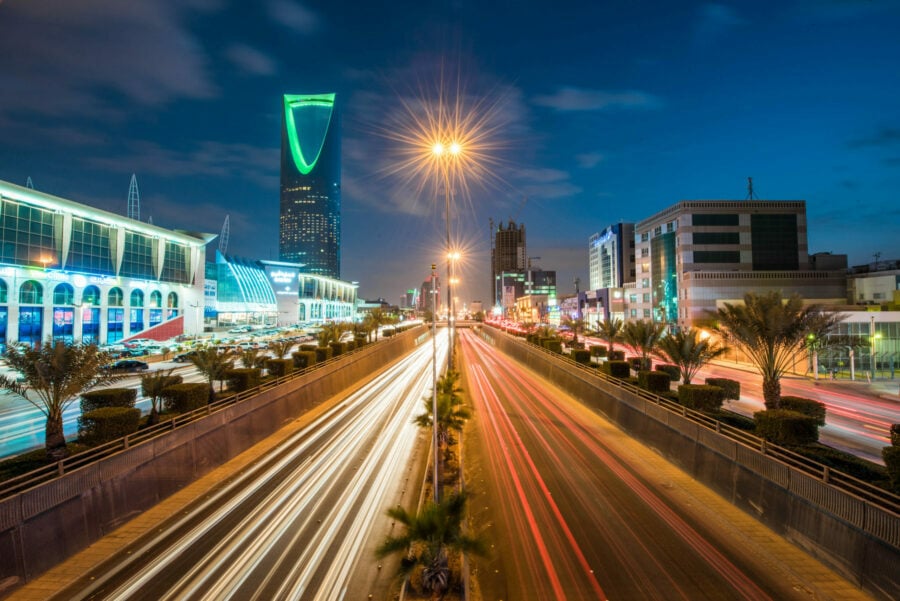Public-private partnerships (PPPs) in the GCC are expected to gain traction in 2023 as regional governments seek investments to deliver critical infrastructure schemes in an increasingly post-petrodollar economic climate.
There are more than $121 billion worth of social housing, education, and healthcare projects planned and underway in the region, according to MEED Projects data issued by the UAE’s Mashreq Bank in October 2022.
Of these, about $66.3 billion worth of investments – or 54.8 percent – are dedicated just to projects in the social housing segment. Healthcare and education PPPs are valued at about $35.5 billion and $19.8 billion, respectively.
READ MORE: Oman’s first-ever PPP schools project has 10 bidders
The majority of these projects are located in Saudi ($71.4 billion), followed by Kuwait ($33 billion), Qatar ($5.7 billion), and the UAE ($4.7 billion).
More than $50 billion of the total amount is tied up in projects under execution, while the remaining $70 billion is for schemes at various stages of planning.
Of the PPP projects under construction, $24 billion are housing developments, with healthcare and education schemes valued at $17.8 billion and $8.5 billion, respectively.
Saudi PPP projects
Saudi Arabia is making major investments to drive a rapid socioeconomic transformation as part of its Vision 2030 mandate.
This, in turn, is helping to place greater emphasis on the contributions and expectations of its upwardly mobile youth population.
Healthcare projects are a particularly high priority in the Saudi PPP sector. Around 100 PPP projects with a combined value of about $12.7 billion could be greenlit over a five-year period, health minister Fahad bin Abdulrahman al-Jalajel said in October 2022.
This includes projects such as the development and operation of two medical cities in the north and south of Saudi Arabia. A 900-bed medical rehabilitation and long-term care services hospital are also in the pipeline.

Also in the pipeline is the restructuring and improvement of more than 200 primary health care service centers, in addition to providing air medical transport and radiology services.
A PPP for medical laboratory services is at the pre-feasibility stage, and a consortium is expected to be confirmed for the 240-bed Al Ansar PPP hospital project in Medina in 2023.
READ MORE: Top 5 MENA transport projects to watch in 2023
Airport PPP projects, a much-anticipated component of Saudi Arabia’s privatization pipeline over the past decade, are also in the works.
The ownership of 29 Saudi airports planned for privatization was shifted to a new entity named Matarat, General Authority of Civil Aviation president Abdulaziz Al Duailej said in May 2022.
In January 2023, Saudi Minister of Transport and Logistics, Saleh bin Nasser al-Jasser, said preparations are ongoing to offer four regional airports in the country to the private sector.
Al-Jasser said a total of 22 investment opportunities are in the pipeline, the Saudi state news agency SPA reported.
Social housing potential
The number of people aged under 30 in the GCC could reach 65 million by 2030, according to an April 2021 report by PwC.
Rising population numbers, especially in regional urban zones, will create further demand for housing units. In markets like Kuwait, projects such as the $2.5 billion Sabah al-Ahmed township and $1.4 billion Jahra and Sulaibiya low-cost homes are ongoing to plug the gap for affordable housing.
Growing population numbers will also increase demand for associated social amenities, such as healthcare and education, according to Cyril Lincoln, executive vice-president, global head of real estate finance and advisory at Mashreq Bank.
“Further bolstering the attractiveness of the region are reforms around visas and ease of conducting business,” he said in October 2022.
“There is a need to provide sufficient and competitive educational institutes for the younger segment of the population – and at the same time, meet the needs of aging counterparts with quality healthcare services.”
Diversifying PPPs in the GCC
PPPs are a widely accepted project delivery vehicle in the GCC, particularly in the power and water sectors.
However, real estate and infrastructure PPPs are gathering pace in the post-COVID economy.
Socioeconomic goals are shifting to ensure long-term urbanization demands are successfully met. Instability in the oil price market over the past two years has also impacted infrastructure investment commitments.
The GCC’s first education PPPs were announced in Saudi and Qatar in 2020, and Abu Dhabi announced the Zayed City schools project in 2021.
In August 2022, Oman’s Finance Ministry qualified 10 bidders for 42 schools planned to be developed under the first education PPP program planned in the country following the announcement of its PPP Law in 2019.
Healthcare PPPs are also progressing. In January 2023, the Omani finance ministry announced plans for seven PPP projects to be advanced in 2023, which include renal dialysis centers and the Al Taafi Suhar center.
Saudi Arabia’s Al-Ansar hospital PPP was also announced in 2020 and is the first healthcare PPP to have been approved under Vision 2030’s portfolio.
READ MORE: Healthcare among most attractive investment sectors in Saudi
“Social infrastructure will continue to top the agenda for GCC governments, as they prioritize the quality of life, medical care, and education for their growing populations,” Lincoln said.
“But there is a need to diversify the way these projects are delivered. It should not be seen as the government’s responsibility alone.”








